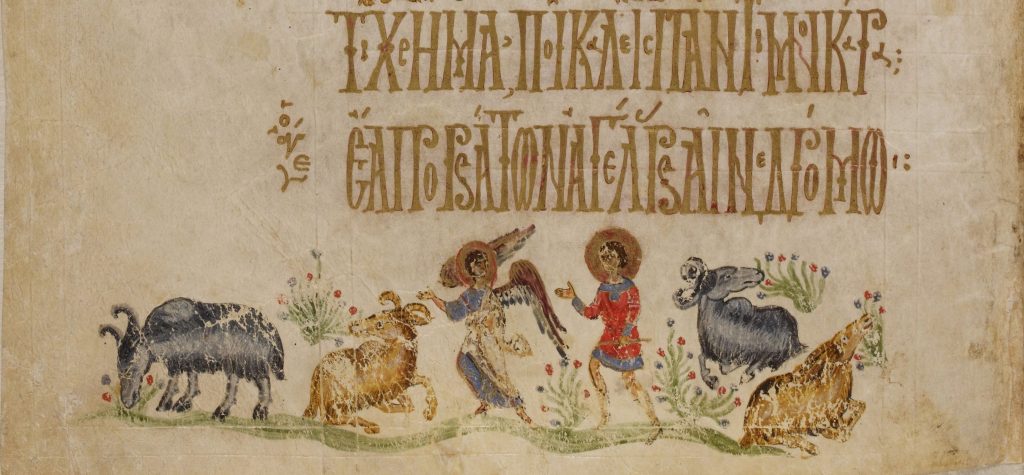The Database of Byzantine Book Epigrams (DBBE) makes available both textual and contextual data of book epigrams – also known as “metrical paratexts” – from medieval Greek manuscripts dating up to the fifteenth century. We define book epigrams as poems in and on books: they have as subject the very manuscript in which they are found, elaborating on its production, contents and use.
The database is freely accessible at https://www.dbbe.ugent.be/.
The database originated from the observation that the edited collections of named Byzantine poets were not the only poetic products that Byzantium left us. Dispersed among manuscripts, there are many smaller and greater poems that are not really part of the main text, and do not belong to a standard scenario of textual transmission and edition. Rather than “texts”, they are “paratexts”. But they are Byzantine poems nonetheless. By their nature, they were difficult to retrieve, and it was impossible to get any overview on their features.
What our database intends to do, is three things:
- Editing texts:
By providing both reliable transcriptions of epigrams based on controlled autopsy of manuscripts and readable texts informed by philological judgement, we want to make available an extensive digital corpus of book epigrams to the scholarly community. - Providing an interrelated, structured, searchable corpus:
By bringing these epigrams together, grouping them, and tagging them, we want to offer users the possibility to gain an overview of this material, through several search parameters. In our new version, we provide more opportunities to visually compare similar poems and parts of poems. - Pointing to existing sources and material:
By assembling references to scholarship, and, not in the least, links to digitized manuscripts, we want to help users to delve deeper into this material.
